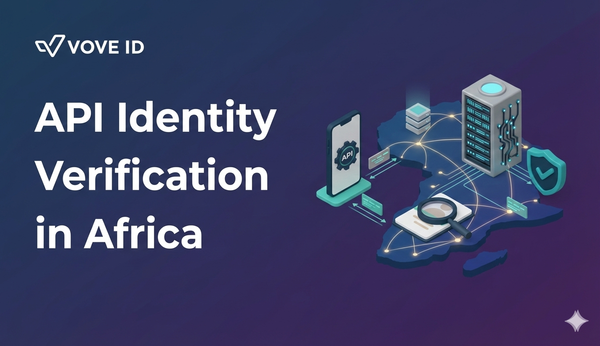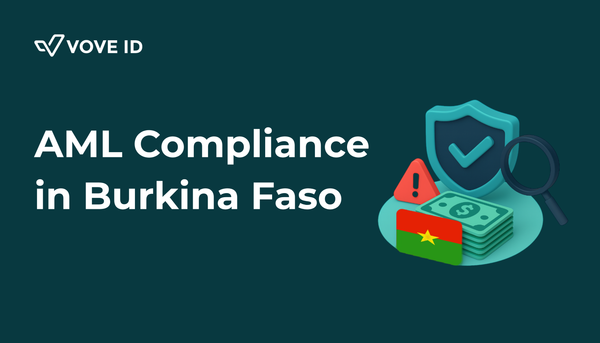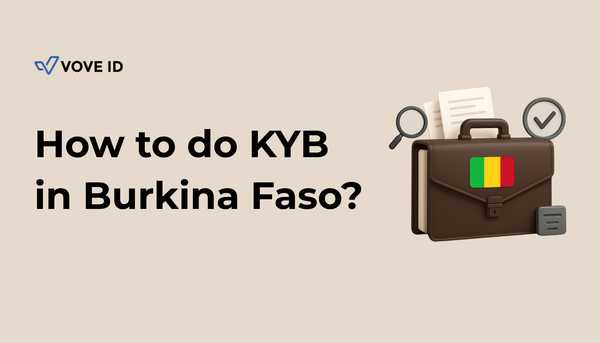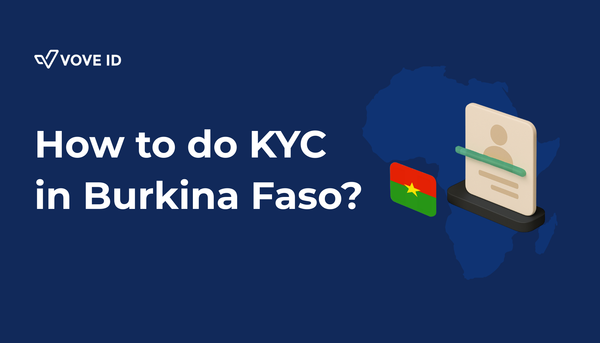KYB Compliance in Senegal: 2025 Guide for Fintechs & Regulated Startups
KYB, digital identity, business verification, and compliance in Senegal — a 2025 guide for fintechs and startups looking to onboard business clients and partners while staying compliant with local regulations.
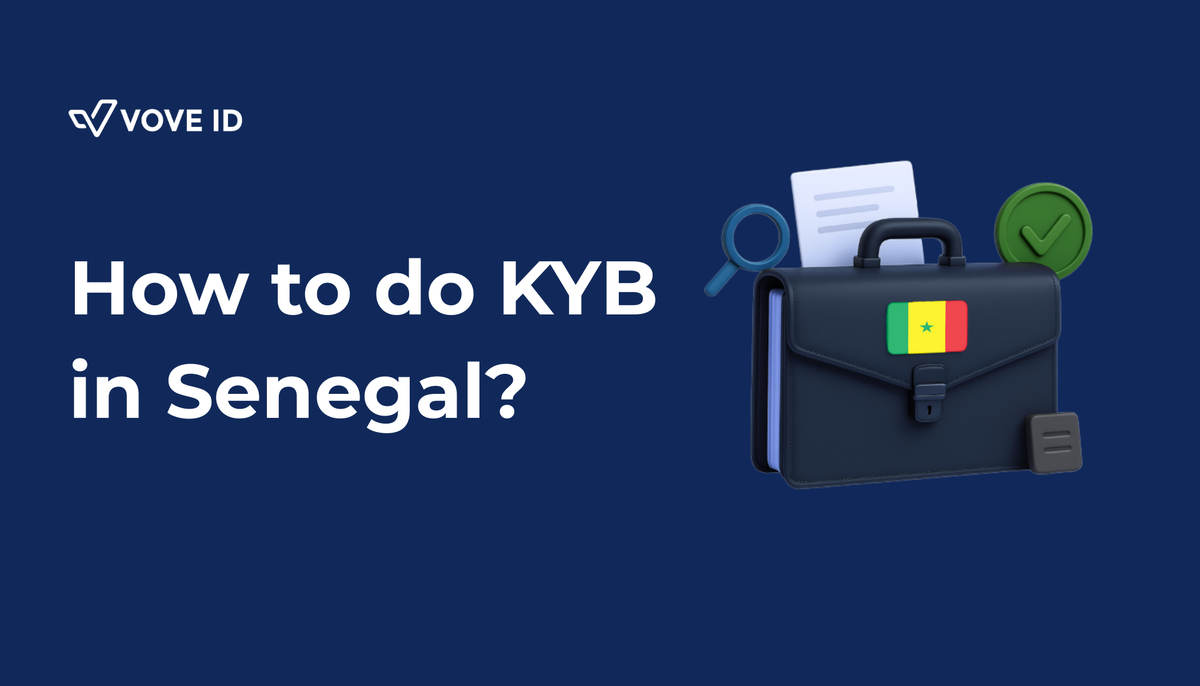
As Senegal’s fintech ecosystem continues to grow, verifying not only individual users but also business clients, merchant partners, and agents has become critical. For early-stage startups (1–50 employees) operating in digital wallets, BNPL, crypto, gig-economy platforms, or mobility tech, implementing effective Know Your Business (KYB) procedures is now a strategic necessity.
Senegal’s regulatory authorities are increasingly focused on business transparency, beneficial ownership disclosure, and AML oversight. In this context, KYB compliance is an essential part of building trust, securing partnerships, and enabling sustainable growth.
Regulatory Framework
Senegal has strengthened its business verification and beneficial-ownership requirements in recent years. Key developments include:
- Mandatory beneficial ownership disclosure: Under the tax code and commercial registry regime, all companies operating in Senegal must declare their beneficial owners to the tax authority.
- Presidential Decree PD/2020/791 (19 March 2020): Established a Beneficial Ownership Registry (BOR) for companies in the extractive sector.
- OECD Peer Review (2024): Confirmed that Senegalese entities must maintain a register of beneficial owners and file it with the tax administration, though identifying indirect control remains a challenge.
- Regional oversight: Fintechs and payment-service providers are subject to enhanced due diligence (EDD) expectations under GIABA and FATF standards.
In practice, when onboarding a business in Senegal, regulated entities must verify:
- Legal existence (via RCCM extract)
- Directors and authorized representatives
- Ultimate Beneficial Owners (UBOs)
- Ongoing changes to control or structure
These measures align Senegal with the broader UEMOA/WAEMU regional compliance framework.
The KYB Process in Senegal
Legal Existence & Business Verification
At onboarding, businesses must retrieve a certified extract from the commercial registry (RCCM) showing the entity’s legal form, address, management, and status.
Confirm that the business is active and legitimate before engagement. Foreign ownership (up to 100%) is permitted in Senegal.
Beneficial Ownership Disclosure
Under Law 2018-03, a beneficial owner is any natural person who ultimately owns or controls the company.
Entities must maintain an internal UBO register and file periodic declarations with the tax administration.
Ownership thresholds vary: typically 25%, but as low as 2% for certain extractive-sector entities.
Risk-Based Due Diligence (RBD)
Fintechs must apply risk-based due diligence, collecting and verifying:
- Company name, legal form, registry number, address
- Director and beneficial-owner IDs
- Proof of business activity (tax certificate, license)
Businesses with foreign ownership or complex structures require Enhanced Due Diligence (EDD) and continuous monitoring for changes in control or suspicious activity.
Record-Keeping & Audit Trail
Senegalese law requires maintaining ownership and corporate data for 10 years.
Digital onboarding processes should store verification logs, timestamps, and data sources - a must-have for compliance readiness and investor confidence.
Technology & Automation
For fintechs scaling in regulated environments, API-based KYB automation simplifies compliance.
A solution like VOVE ID helps verify company registration, directors, and beneficial owners seamlessly, embedding an audit-ready process directly into onboarding.
Challenges for Businesses
- Incomplete UBO registers: Compliance rates remain low among small entities (<7% per recent reviews).
- Complex ownership layers: Identifying indirect control or influence is still difficult.
- Registry digitization gaps: Limited API access and partial digitization slow automation.
- Startup resource constraints: Small teams struggle to manage manual KYB efficiently.
- Informal merchant networks: Agent or partner ecosystems often involve high-risk, cash-heavy businesses.
Opportunities & Emerging Trends
- Digital onboarding momentum: Automated KYB is becoming a differentiator for fintechs expanding regionally.
- Improved transparency: The gradual rollout of Senegal’s beneficial-ownership register is increasing confidence in the market.
- RegTech adoption: KYB automation reduces friction, improves onboarding speed, and enhances risk visibility.
- Cross-border scaling: Strong KYB foundations position startups to expand smoothly across WAEMU markets.
How VOVE ID Supports KYB in Senegal
For fintechs and regulated digital businesses, VOVE ID delivers the technology foundation to stay compliant and scale securely.
VOVE ID enables you to:
✅ Automate KYB workflows: registry checks, director verification, and UBO identification
✅ Onboard businesses, merchants, and agents in minutes, not days
✅ Align fully with Senegal’s KYB and AML expectations while maintaining an audit-ready trail
By integrating VOVE ID APIs, startups can build frictionless KYB experiences and ensure compliance readiness from day one.
Conclusion
KYB compliance in Senegal is now a pillar of responsible fintech growth. As the country enhances beneficial ownership transparency and risk-based oversight, early adoption of strong KYB frameworks gives startups a long-term competitive edge.
By partnering with VOVE ID, Senegalese fintechs can automate due diligence, verify entities in real time, and confidently expand across West Africa’s integrated digital economy.
❓FAQ: Practical Insights on KYB in Senegal
What’s the biggest mistake startups make with KYB in Senegal?
Many fintechs assume KYB only applies to large or incorporated businesses. In reality, agent networks, small merchants, and even freelancers operating under your platform may require simplified KYB. Ignoring these checks can expose startups to AML breaches and partnership risks with banks.
How does KYB link to KYC and AML requirements?
KYB is effectively the “business version” of KYC: both are pillars of Senegal’s AML regime. When onboarding a business client, you verify its existence and ownership (KYB), but also screen its directors and UBOs as individuals (KYC). A strong KYB program helps detect shell companies and prevent money laundering through merchant or agent networks.
What are the penalties for KYB non-compliance in Senegal?
Under Law 2018-03 and its 2024 amendments, institutions that fail to perform due diligence on business relationships can face fines up to XOF 500 million and criminal liability for senior managers in severe cases. Regulators have become more proactive since Senegal’s FATF grey-list removal in 2024.
How can fintechs maintain KYB compliance without overloading small teams?
Automating KYB workflows through RegTech solutions like VOVE ID can reduce manual verification work by over 80%. With integrated document verification, UBO extraction, and audit-ready logs, startups can stay compliant even without a full in-house compliance department.
Ready to simplify your KYB and compliance operations in Senegal?
👉 Visit VOVE ID to discover how our API-first verification platform helps fintechs automate business onboarding, stay compliant, and scale across Africa.

